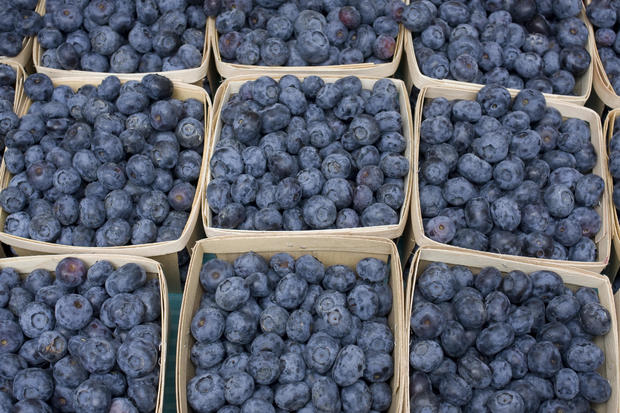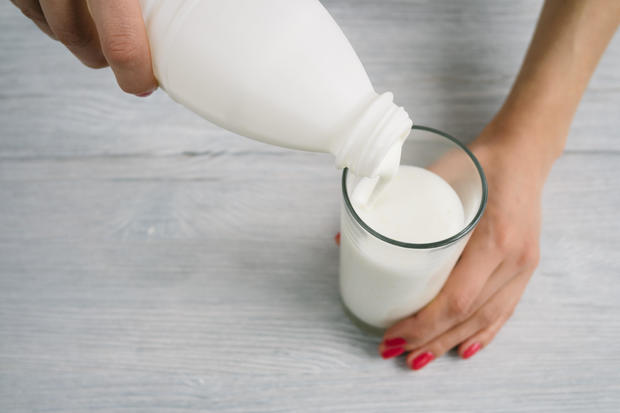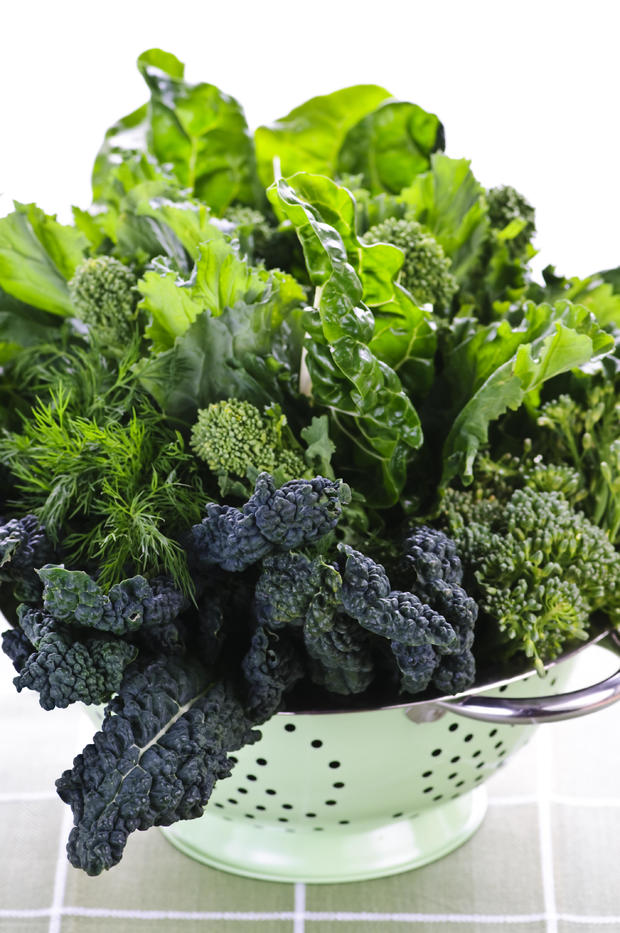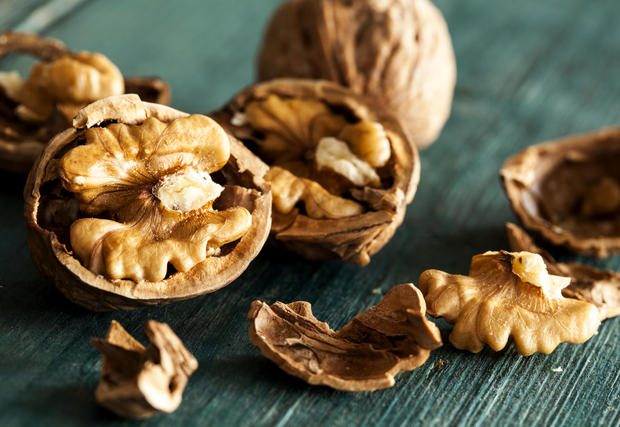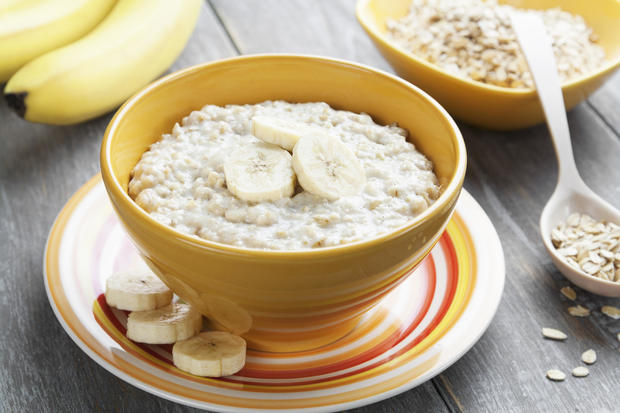Good foods for brain health
What you eat can play a role in brain health, and certain foods are especially beneficial, according to scientific experts interviewed by CBS News.
Blueberries have high levels of flavonoids, a compound in food that reduces oxidation in the body. Over time, oxidation damages cells and can contribute to aging. "There is exciting preliminary evidence of blueberries for brain health," said Francine Grodstein, Sc.D., professor of medicine at Harvard Medical School.
Olive oil
Olive oil is high in unsaturated fatty acids. It's also a key component of the Mediterranean diet and the related MIND diet, which are associated with lower rates of Alzheimer's disease. Olive oil is also the choice of medical experts like Dean Hartley, Ph.D., director of science initiatives at the Alzheimer's Association. "With my diet, I do try to go more toward the Mediterranean diet, including things like olive oil and salmon."
Kefir
Kefir, a fermented milk drink, is a type of probiotic. "Probiotics are actually adding bacteria to your gut that's beneficial," said Rudy Tanzi, Ph.D., professor of neurology at Massachusetts General Hospital. Maintaining healthy gut bacteria can have positive impacts on brain health, because "there exists a gut-brain axis, where the gut controls inflammation in the brain," according to Tanzi.
Leafy greens
Green, leafy vegetables such as romaine, arugula, kale, collard greens, broccoli, spinach, and Swiss chard are among the foods that support brain health.
"Across several studies there is fairly consistent findings that green, leafy vegetables do seem to be related to decreased risk of cognitive impairments or dementia," said Grodstein.
Walnuts
Walnuts contain omega-3 fatty acids. "There's good evidence that these omega-3 fatty acids help to lower LDL, the 'bad cholesterol,' that increases risk of stroke or heart attack," said Dean Hartley, Ph.D., director of science initiatives at the Alzheimer's Association.
Kimchi
Kimchi is a fermented cabbage dish found traditionally in Korean diets. However, everyone can benefit from this probiotic food. "Probiotics are actually adding bacteria to your gut that's beneficial," said Tanzi. He explained that maintaining healthy gut bacteria can help to reduce neuroinflammation, or inflammation of the central nervous system, which affects brain health.
Salmon
Salmon is rich in omega-3 fatty acids, especially the compounds DHA and EPA. "People whose diets have more fish in them do seem to be less likely to develop memory problems," said Grodstein. Salmon and other fish are also an important part of the Mediterranean diet.
Algal oil
Algal oil (made from algae) is high in omega-3 fatty acids. But unlike fish oil supplements, which are also high in omega-3, algae oil doesn't carry the risk of contamination with heavy metals. "Fish oil comes from fatty fish, which live in the ocean. Our oceans are now unfortunately contaminated with heavy metals like mercury, cesium, cadmium, and lead," said Tanzi. "The fish oil itself is made from the fat of the fish, where those metals are concentrated."
Oatmeal
Oatmeal is a prebiotic food, which can benefit bacteria found normally in your intestines. "Prebiotics means fiber and roughage that's helping to promote the growth of the beneficial bacteria in your gut. It's making the existing bacteria in your gut happy," said Tanzi.
Occasional fasting?
It's not yet clear whether fasting and caloric restriction diets have benefits for brain health, according to Dean Hartley of the Alzheimer's Association. "In fact, one of the problems that we often see is that people with Alzheimer's disease have a failure to thrive," said Hartley. "They are not necessarily able to take in the proper calories." However, animal and human studies have shown evidence that certain fasting diets can help with other diseases of old age, including insulin resistance.
